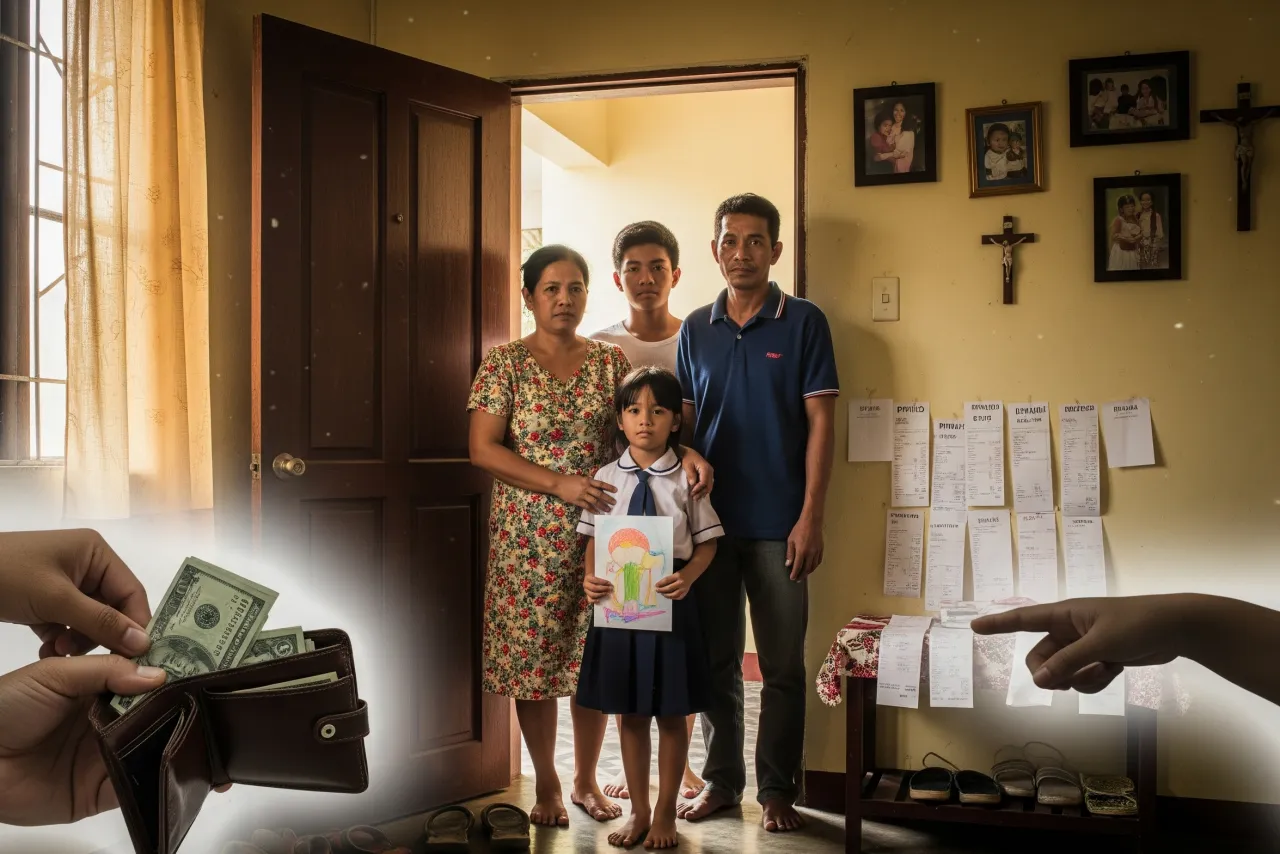💔 A Vow for Life: A Prison Sentence for Others?
In a world where divorce is a given, the Philippines stands alone. It is the only country outside of Vatican City where divorce is still illegal. Our marriage vows, “till death do us part,” are not just a romantic promise but a binding legal contract with no easy way out. For many, this is a beautiful testament to our deeply-held family values. For countless others, it is a living nightmare, a prison sentence without parole. Here in my community of Zamboanga Peninsula, and across the nation, we witness the quiet tragedies every day. A woman trapped in an abusive marriage. A man who has long since fallen out of love. A family fractured, but with no legal path to a clean slate. So, the question is simple, but the answer is anything but: Should divorce be legal in the Philippines?
The debate is a fiery one. It pits our conservative, faith-driven traditions against the modern-day realities of domestic abuse, irreconcilable differences, and the simple right to find happiness. It is a war of principles, a clash between the sanctity of marriage and the sanctity of individual freedom. The legal system, in its current form, offers a few narrow, expensive, and emotionally draining escape hatches. But these options are simply not enough for millions of Filipinos. This is not just a legal discussion; it is a profound national drama about love, betrayal, and the painful search for a second chance.
⚖️ The Annulment Anguish: A Loophole, Not a Solution
For a Filipino who wants out of a failed marriage, the current legal system offers two primary avenues: legal separation and annulment. Neither one is a genuine alternative to divorce. Legal separation allows couples to live apart but does not dissolve the marriage, meaning neither party can remarry. Annulment, on the other hand, invalidates a marriage entirely, as if it never happened. Sounds like a solution, right? The reality, however, is a different story.
💰 The High Cost of Freedom: The Annulment Nightmare
Annulment is a privileged escape hatch. It is expensive, time-consuming, and emotionally draining, accessible only to those with the financial means and the mental fortitude to endure it. The process is a brutal legal and emotional battle.
- Financial Burden: The legal fees for an annulment can range from P150,000 to P500,000, or even more. This is an impossible sum for the vast majority of Filipinos, especially those in the lower income brackets. A simple laborer from my province, earning minimum wage, would have to work for years just to save up for the legal fees, not counting the cost of evidence gathering and expert testimonies.
- Time and Effort: The process can drag on for two to five years, sometimes even longer. The couple and their families must relive the painful details of their marriage in court, with no guarantee of success.
- Psychological Toll: The primary grounds for annulment is “psychological incapacity.” This requires one of the spouses to be diagnosed with a severe and incurable mental condition that prevents them from fulfilling the essential obligations of marriage. This is not only a painful and humiliating process, but it also unfairly pathologizes a person to escape a broken marriage. It is a legal fiction that is both expensive and degrading.
The annulment process is a harsh reminder that in the Philippines, the right to a second chance is a luxury, not a universal right. It is a system that protects the institution of marriage at the expense of the people trapped within it.
❤️ The Case For: A Plea for Second Chances
On one side of the debate are the advocates who believe that a modern, progressive nation should give its citizens the right to a clean and dignified exit from a failed marriage. They argue that legalizing divorce is not an attack on the family but a necessary tool to protect its members.
🛡️ Protecting Women and Children
For countless women and children, divorce is not an option; it is a matter of survival. It can be a lifeline for victims of physical, emotional, and sexual abuse. On the other hand, the current system often leaves them with no recourse but to suffer in silence or endure the long, costly battle of annulment. Divorce would provide a swift and effective legal path to safety, allowing them to escape a toxic environment and rebuild their lives.
- Faster Escape from Abuse: A divorce law would allow victims of domestic violence to quickly and legally separate from their abuser.
- Clearer Child Welfare: Divorce laws typically include provisions for child support and custody, which can provide a clearer and more stable future for children.
- Dignity and Respect: Instead of forcing one spouse to claim “psychological incapacity,” a divorce law would allow couples to separate on the grounds of simple incompatibility, preserving their dignity.
🕊️ Financial and Emotional Freedom
For couples who are simply no longer in love, divorce offers a humane way to part ways. It would allow them to formally end their marriage, divide their assets fairly, and move on with their lives. The current system forces them to either remain in an unhappy marriage or spend years and hundreds of thousands of pesos to secure an annulment. Divorce is a simple, straightforward, and affordable way to find a second chance at happiness.
✝️ The Case Against: Upholding a Sacred Vow
The most vocal opposition to legalizing divorce comes from the Catholic Church and other religious groups. They believe that marriage is a sacred institution that should not be dissolved by man-made laws. Their arguments are rooted in faith and the belief that the family unit is the bedrock of our society.
⛪ The Church’s Stand: An Indissoluble Sacrament
The Catholic Church in the Philippines, which holds immense political and social power, views marriage as a sacred and indissoluble sacrament. For them, a civil law allowing divorce is a direct contradiction to their religious teachings. They argue that the state should not have the power to dissolve a union that was sanctioned by God.
- Sanctity of Marriage: The Church believes that marriage is a lifetime commitment that should not be easily abandoned when difficulties arise.
- Religious Freedom: They argue that legalizing divorce would infringe on the religious beliefs of millions of Filipinos who view marriage as a permanent vow.
👨👩👧 Threatening Filipino Family Values
Opponents also argue that legalizing divorce would weaken the very foundation of the Filipino family. They believe that the absence of a divorce law forces couples to work harder to save their marriages and, consequently, their families. They fear that a divorce law would lead to a breakdown of traditional family structures and values.
- Family Cohesion: Opponents believe that the lack of a divorce law is a strong deterrent to unfaithfulness and a powerful motivator for couples to resolve their conflicts.
- Children’s Welfare: They argue that divorce can have a negative impact on children, leading to emotional and psychological trauma.
📊 Annulment vs. Divorce: A Clear Comparison
This table outlines the key differences between the current legal options and the proposed divorce law.
🤔 FAQs about Divorce in the Philippines
Q1: Why is divorce not legal in the Philippines? A: Divorce is not legal in the Philippines primarily due to strong opposition from the Roman Catholic Church and the belief that the absence of divorce protects the sanctity of marriage and the Filipino family.
Q2: What is the main difference between annulment and divorce? A: Annulment voids a marriage, declaring it invalid from the very beginning. Divorce, on the other hand, legally ends a valid marriage. Divorce is typically a simpler and more accessible process.
Q3: Does the proposed divorce law apply to Muslim Filipinos? A: No, under the Code of Muslim Personal Laws of the Philippines, divorce is already legal for Muslim Filipinos. The proposed law would extend this right to all other citizens.
Q4: Will legalizing divorce destroy Filipino families? A: Proponents argue that divorce does not destroy families; it provides a dignified exit from an already broken one. They believe that staying in a toxic marriage is far more damaging to a family than legally ending it.
🇵🇭 A Nation at a Crossroads
The debate over legalizing divorce in the Philippines is not just about a law; it is about our identity as a nation. It is about whether we will continue to prioritize an institution at the expense of the people within it. The current system of annulment is not a genuine alternative; it is a testament to a society that is afraid to confront the truth about its broken marriages. The time for change is long overdue. It is a time for us to have a compassionate and honest conversation about what it truly means to love, to fail, and to find the courage to start over.
What do you believe? Is divorce a sin or a human right? Share your thoughts in the comments below. 👇




